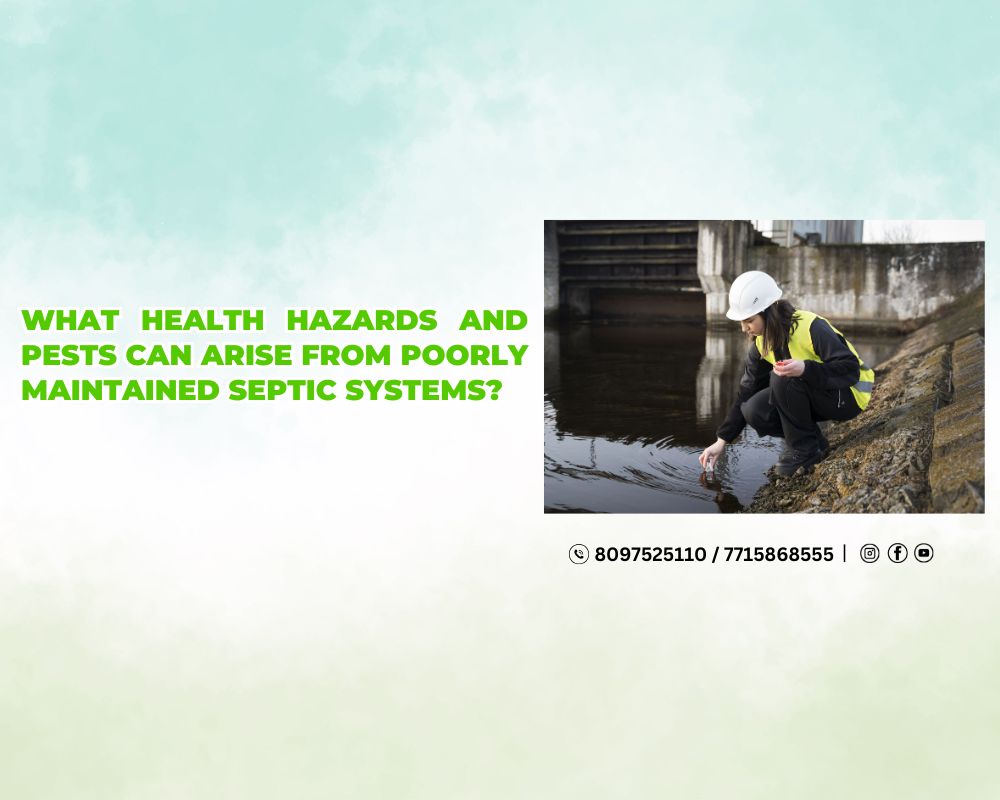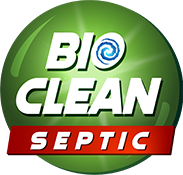
What Health Hazards and Pests Can Arise from Poorly Maintained Septic Systems?
Share
Septic systems are designed for proper wastewater management beneath the surface. These can't be neglected and left untreated because they can cause a lot of unexpected issues with property, health, and the environment.
Malfunctioning of a septic system can cause more serious consequences, and nobody wants to compromise on hygiene and health.
In the article, we'll cover the hidden and surprising dangers that can emerge from poorly managed septic and drain systems. Indeed, we will give a verdict on why staying proactive for septic tank cleaning is essential.
The Overview Of Septic System
The septic system mainly consists of a septic tank where solids settle and partially break down because of microbes and bacteria. Next, have a drain field where liquid waste gets filtered naturally.

The whole septic system needs timely cleaning and maintenance, such as pumping every three to five years, periodic inspections, and responsible water usage.
If your septic system isn’t properly maintained, then neglect will accumulate and may cause a leak. Apart from it leads to foul smells, water contamination, and pest infestations, which are unhygienic and risky for health.
The Health Hazards Caused From Failing Septic Systems
A failed septic system is a boon to breed harmful bacteria, viruses and parasites. Therefore, it is detrimental to the environment and health, causing long-term wellness issues and illness risks. The significant threats and health hazards with poorly maintained septic systems are:
Ground Water Contamination
That's a huge risk when the toxicity of a septic system penetrates water resources. The septic failures can cause contamination of groundwater and make it unhealthy and unsafe for use. Typically, contaminated water can easily carry pathogens like;
-
E.coli promotes severe stomach health issues, cramps, diarrhoea and vomiting.
-
Salmonella causes fever, diarrhoea and stomach pain.
-
Giardia Lamblia is a type of parasite that causes giardiasis, watery diarrhoea, and fatigue.
-
Hepatitis A Virus; a type of liver infection that spreads because of contaminated water & food.
The use of contaminated water can result in chronic gastrointestinal infections and illness.
Pollutes Surface Water and Soil
Malfunctioned and improper septic systems may leak into the nearby surface water sources like rivers, lakes and home yard water. This water pollution can harm the local ecosystem and turn water into a breeding ground for pests like flies, mosquitoes, and rodents, causing waterborne diseases.
Growth of Mildew and Mold
Sewage backups not only cause indoor flooding but also result in moisture inside the property. This results in the growth of organic matter that encourages breeding of mould and mildew that cause chronic health issues such as;
Cause respiratory problems: asthma, allergic reactions, sinus infection. Such illnesses quickly impact people with respiratory issues and sensitivities.
Skin & Eye Irritations
The risk of leaks, backups and puddles around in the yard can cause infections, rashes and skin allergies. The prolonged exposure can cause open sores & severe conditions to the skin if bacteria enter.
Pets Attracted to Poorly Maintained Septic Systems
Any neglected septic system is a source of breeding pests, bringing health risks and nuisances. These unwanted predators are attracted to moisture, organic material and strong foul-smelling that spreads in malfunctioning septic systems.
Mosquitoes
The standing water or pooling around the drain area or septic tank is the perfect place for mosquitoes to breed. These impact health, causing serious diseases like;
-
West Nile virus.
-
Zika virus.
-
Dengue fever.
-
Malaria.
-
Files and Gnats
Decaying waste and sewage odour are enough to attract flies and fungus gnats. These do carry bacteria and pathogens on their bodies that contaminate food, water, trash bins and open wounds. Drain flies infest the kitchen, yard, and bathrooms, laying eggs; therefore, they need a septic system to maintain them.
Rats and Rodents
Typically, rats, mice, and other rodents have a strong sense of smell and are likely fond of wet environments. If your septic tank area is soggy and messy with leaking or damaged pipes, then a favourable environment for them. These are lively carriers of multiple diseases like;
-
Leptospirosis.
-
Hantavirus.
-
Salmonellosis.
Cockroaches
The dark, moist and messy environments are lovable to cockroaches, as they are attracted to damp conditions. It helps in the spreading of bacteria like E.coli and salmonella. Apart from that, it triggers health with allergies and respiratory illness conditions. Cockroaches also contaminate food, surfaces, and water.
Risk to Larger and Wilder Pests
The yard with the septic system may get larger and wilder pests like raccoons, opossums, etc. They may get attracted to the smell of raw sewage. However, it doesn't harm septic tanks but creates risks to people with disease transmission and property damage.
The Signs To Know If Septic System Is Failed or Malfunctioned
Early inspection and timely maintenance can prevent health hazards. It even lowers the risk of pest infestation. The warning signs are below; do consider them seriously if you don't want property damage, health issues and a safer environment.
-
Foul odour near drains, toilets, yard and septic tank area.
-
Slow draining in sinks, bathtubs, toilets.
-
Gurgling sounds in plumbing.
-
Lush green patches of grass over or near the drain field.
-
Soggy soil, messy or muddy smell and standing water near a septic system or drain field.
-
Pest presence indoors and around the property.
Best Practices To Prevent Health Hazards and Pests Arising
Precisely regular maintenance and responsible water usage can lower the risk of septic overloading or overfilling. It, in fact, can make home cleaner, safer and healthier. Here are the best practices to follow;
Timely Inspection
Schedule regular inspections and maintenance. Look out for the pumping service for septic tanks every 3-5 years. Calling a septic tank cleaning service depends on property size, septic tank capacity, and water usage.
Use Water Efficiently
Overloading the system with excessive water is a risk. Therefore, the best is to install low-flow faucets and fix leakages. You must also spread out the laundry load.
Don't Flush Harmful Products and Materials
You should never flush grease, fats and oils. Avoid flushing baby wipes, sanitary products and personal hygiene items into toilets. Instead of using harsh chemicals for cleaning, go for biodegradable soaps and detergents. Don't throw medications, food scraps and coffee grounds into the sinks; it can disturb the septic tank pH level and kill beneficial bacteria.
The Final Verdict
A poorly maintained septic system is problematic in many ways, creating plumbing inconvenience, health risks and hygiene impacts. It's a serious issue of property damage and making the environment unsafe, unclean and unhealthy. Fortunately, using products like BioClean, a biodegradable, septic tank cleaning powder, can be the best solution to start stepping into prevention. Apart from that, keeping a check on septic system health with timely inspection, responsible usage, and a proactive approach is suitable to extend the lifespan of the septic tank.
